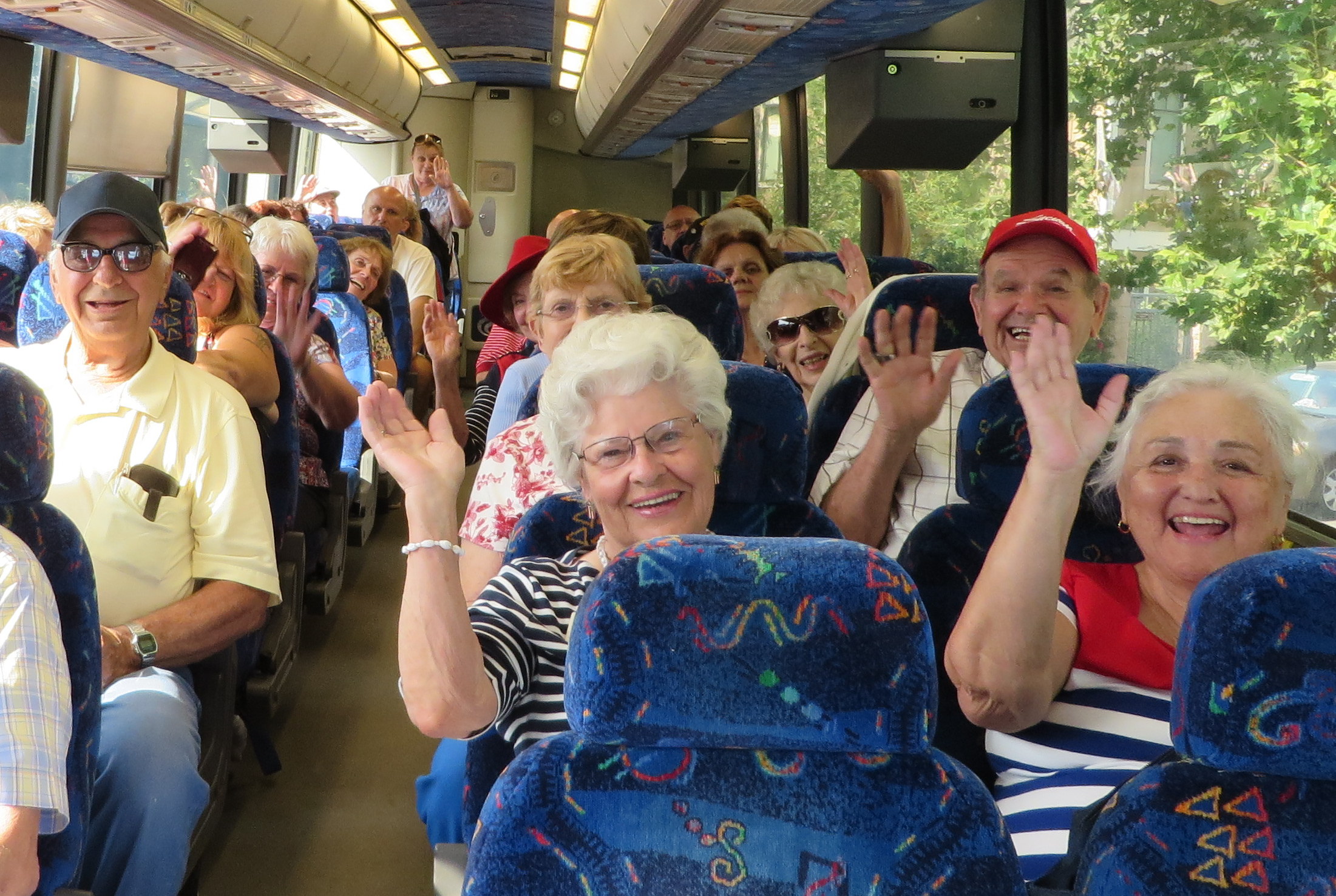Senior citizen group tours offer a unique blend of adventure, companionship, and ease of travel, catering to the specific needs and preferences of older adults. These tours often focus on accessibility, providing comfortable transportation, well-planned itineraries, and support services to ensure a worry-free experience. Whether it’s exploring historical landmarks, embarking on a relaxing cruise, or immersing oneself in a new culture, senior citizen group tours provide a tailored approach to travel, opening up a world of possibilities for those in their golden years.
This comprehensive guide delves into the various aspects of planning and participating in senior citizen group tours, covering everything from choosing the right destination and tour operator to understanding budgeting, safety protocols, and legal considerations. We aim to provide a clear and informative resource for both potential travelers and those involved in organizing such tours.
Safety & Risk Management
Senior citizen group tours, while enriching and enjoyable, necessitate meticulous planning and execution to mitigate potential risks. The well-being and safety of participants are paramount, requiring proactive measures to address various hazards that may arise during travel. This section details potential safety risks, preventative strategies, emergency procedures, and crucial pre-trip briefing considerations.
Potential Safety Risks and Preventative Measures
Several factors contribute to safety risks during senior citizen group tours. These include falls due to uneven terrain or slippery surfaces, medical emergencies stemming from pre-existing conditions or unexpected illnesses, medication management challenges, and the potential for participants to become disoriented or lost. Preventative measures involve careful site selection, prioritizing accessible and well-maintained locations. Thorough pre-trip health assessments and medication reviews are crucial.
Providing clear and frequent communication, using visual aids such as maps and schedules, and employing trained chaperones who can provide personalized assistance are essential strategies. Furthermore, appropriate footwear recommendations and regular rest breaks are key to preventing fatigue and minimizing the risk of falls.
Emergency Procedures and Protocols
Comprehensive emergency procedures are vital for handling unforeseen events. A designated emergency contact person should be readily available throughout the tour. For medical emergencies, immediate access to medical services is critical. This involves pre-arranged agreements with local healthcare providers and ensuring participants carry necessary medical information and emergency contact details. If a participant becomes lost, a pre-determined meeting point and a communication system (e.g., walkie-talkies or mobile phones) are essential for swift reunification.
In the event of natural disasters, evacuation plans, pre-identified safe zones, and emergency supplies are necessary. Regular drills and training for tour staff on these procedures are crucial for effective response. For example, a detailed evacuation plan, including designated assembly points and transportation arrangements, should be developed for scenarios like a wildfire or earthquake.
Pre-Trip Briefing Safety Checklist
A comprehensive pre-trip briefing is essential to ensure participants are aware of potential risks and emergency procedures. This briefing should include a review of the itinerary, emphasizing potential hazards at each location. Participants should be informed about emergency contact information, meeting points, and procedures for reporting any issues. A detailed explanation of the emergency procedures for medical emergencies, lost participants, and natural disasters should be provided.
The briefing should also cover the importance of carrying necessary medications, appropriate clothing, and personal identification. Finally, a clear communication strategy should be Artikeld, detailing how participants can contact tour staff in case of need. This checklist should be distributed to each participant in advance of the trip and reviewed thoroughly during the briefing.
Legal & Regulatory Compliance: Senior Citizen Group Tours
Organizing senior citizen group tours necessitates meticulous adherence to a complex web of legal and regulatory frameworks. Failure to comply can result in significant financial penalties, reputational damage, and even legal action. This section Artikels key legal considerations to ensure smooth and compliant tour operations.Travel insurance requirements and data privacy regulations are paramount. Ensuring appropriate permits and licenses are secured is also crucial for operating legally.
Finally, understanding and implementing accessibility laws is essential for providing inclusive and safe travel experiences for all participants.
Travel Insurance and Data Privacy
Comprehensive travel insurance is not merely advisable; it’s often a legal requirement, depending on the tour’s destination and the specific contracts in place. Policies should cover medical emergencies, trip cancellations, and lost luggage, providing crucial protection for both the tour operator and the participants. Furthermore, stringent data privacy regulations, such as GDPR (in Europe) and CCPA (in California), dictate how personal information collected from seniors (names, addresses, medical conditions, etc.) must be handled, stored, and protected.
Failure to comply can lead to hefty fines. Tour operators must implement robust data protection measures and clearly inform participants about their data handling practices. Examples of such measures include data encryption, secure storage, and transparent data usage policies.
Permits and Licenses, Senior citizen group tours
Obtaining the necessary permits and licenses varies depending on the tour’s location and activities. For example, tours involving transportation might require specific vehicle permits or licenses for the drivers. Tours visiting national parks or other protected areas may require permits for access and group size. Operating without the required licenses exposes the tour operator to legal risks and potential operational disruptions.
Proactive research and adherence to local regulations are critical. Failing to obtain the correct permits can lead to fines and the cancellation of the tour.
Accessibility Compliance
Ensuring compliance with accessibility laws is not only ethically sound but also legally mandated in many jurisdictions. The Americans with Disabilities Act (ADA) in the United States, for instance, sets standards for accessibility in transportation, accommodations, and public spaces. Similar laws exist in other countries. Tour operators must provide accessible transportation, consider the needs of seniors with mobility issues, and ensure that accommodations and venues are compliant.
This might involve selecting accessible transportation, booking accessible hotel rooms, and arranging for appropriate assistance during the tour. Failure to meet accessibility standards can result in legal challenges and reputational harm. Thorough planning and communication with participants regarding their accessibility needs are essential for compliance.
Ultimately, the key to a successful senior citizen group tour lies in careful planning, attention to detail, and a commitment to inclusivity and safety. By understanding the diverse needs of older travelers and employing effective marketing strategies, tour operators can create enriching and memorable experiences that cater to this growing segment of the travel market. With careful consideration of accessibility, budgeting, and risk management, senior citizen group tours can offer a rewarding and fulfilling travel experience for all participants.
When investigating detailed guidance, check out kue bingka pandan now.

